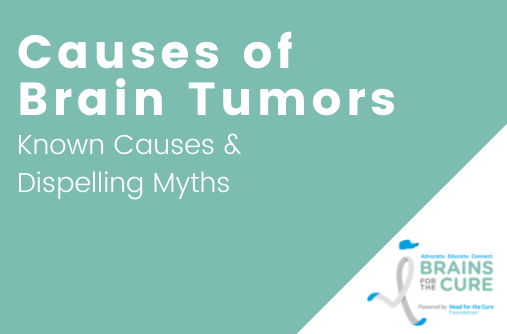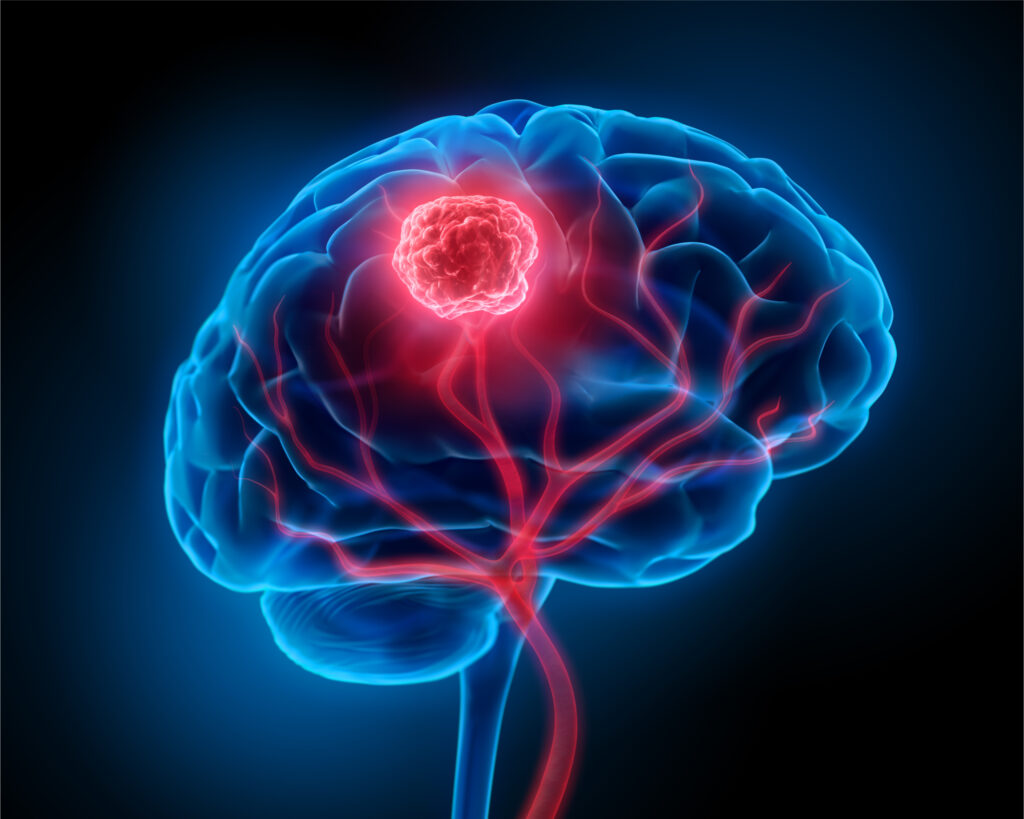May 13, 2021
Causes of Brain Tumors

“Why did this happen to me” is the kind of thing anybody might ask themself when faced with something as unwelcome as a brain tumor. You might recall choices and circumstances in your life, looking for something to blame.
The truth of it is, a brain tumor is generally caused by things that are outside of our control.

Not only that, usually there’s nobody else to blame either. Despite much searching, scientists have never found any definitive evidence that cell phones or cell towers, chemical dumping, food or drugs, or anything of that nature is a major cause of brain tumors. That said, people who are concerned about cell phones may find comfort by switching to headphones or speakerphone, so as not to hold a radio transmitter near their head.
The main cause of brain tumors seems to be mutations in your DNA that makes you susceptible. The only environmental factor that seems to be a major cause is exposure to large amounts of X-rays, such as from radiation treatment for another cancer.
Primary vs Metastatic
So far we’ve mainly been talking about causes of primary brain tumors. These are tumors that originate in the brain. These include gliomas such as glioblastoma, astrocytoma, oligodendroglioma, and ependymoma, as well as non-gliomas like meningioma and medulloblastoma.
But brain and spine metastases are another serious case of brain tumors, and these occur when a cancer that originates elsewhere in the body spreads to the brain or spine. Many types of cancer can spread to the brain or spine, but common ones include melanoma, lung cancer, breast cancer, and colon cancer.
If you are being treated for another cancer, or have a history with another cancer, your doctor should monitor for any signs that brain spread has occurred. These include pressure on the skull, headache, vomiting, seizures, loss of vision, loss of consciousness, changes in personality, or other neurological symptoms.
Risk factors
Age
Brain tumors can strike at any age, but as with many other conditions, the risk factors increase with age. For instance, glioblastoma is most common in 75 to 84-year-olds.
Diet
No food or drug is known to increase the likelihood of a brain tumor diagnosis. That said, there is some evidence that patients who maintain lower blood sugar levels through diet have better treatment outcomes.
Inheritance
Brain tumors aren’t directly heritable. That means there isn’t a gene known to cause brain tumors that is passed from parent to child. If you have a brain tumor, that doesn’t mean your child will get one. If your parent had one, it doesn’t mean you will too.
Chemicals
No specific products or chemicals have been identified as being a direct cause of brain tumors. There is evidence showing slightly elevated risk for people in some fields with high chemical exposure, such as painters, hairdressers, and farmers.
Viruses
Some studies have suggested that the Epstein-Barr virus may be linked to brain tumors, but no definitive role for the virus has been proven.